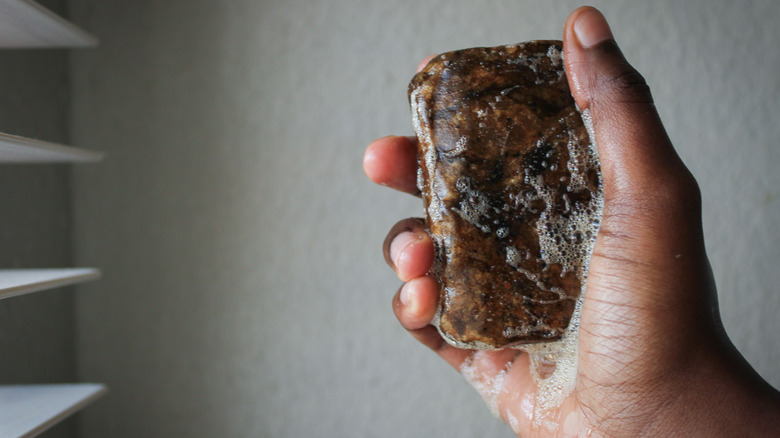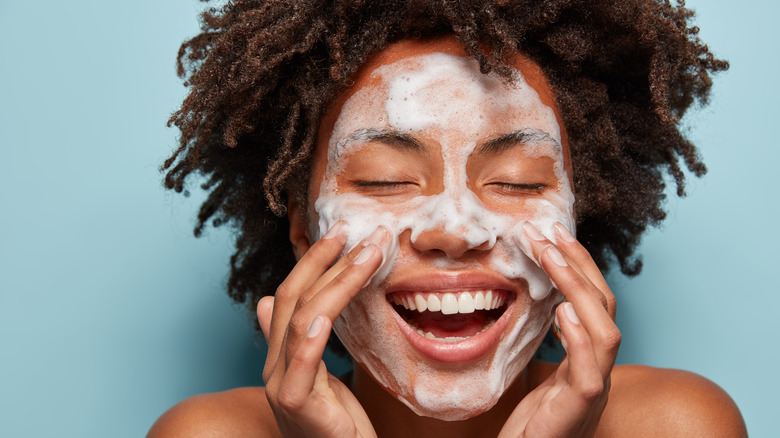When You Use African Black Soap Every Day, This Is What Happens
African black soap is a popular skincare product known for its healing and nourishing properties. Originating from the West African countries of Ghana and Nigeria, African black soap is a traditionally handmade and plant-based cleanser that has become increasingly popular in the United States over the last few years (via Byrdie). That's because the soap contains natural and organic ingredients that can improve the overall quality of your skin, especially if it is used on a regular basis.
Also known as ose dudu, African black soap is typically made with moisturizing oils like palm oil, coconut oil, shea butter, and cocoa butter. It is also made from the ashes of burnt palm leaves, plantain skin, and cocoa pods. The ash is what sets the soap apart according to Erica Douglas, a beauty product formulator known as "Sister Scientist." "The vitamin-rich ash is the magical secret that gives African black soap the ability to not just clean the skin, but to help soothe skin issues," she told Well+Good.
The benefits of African black soap
African black soap's unique ingredients and antibacterial properties can vastly improve the quality of your skin in a number of ways. In addition to cleansing and exfoliating, African black soap can help soothe and moisturize your skin and treat a variety of common skin conditions (via Well+Good). For instance, it can help prevent and get rid of acne by removing dirt, bacteria, and excess oil from your pores while still balancing the natural oils on your skin.
Using African black soap can also help reduce hyperpigmentation, like dark spots and acne scars. The combination of vitamin E and vitamin A in African black soap has been proven to treat discoloration, and evens out skin tone and texture by turning over the cells on the surface of your skin. Furthermore, African black soap can reduce dryness and irritation as the natural oils and body butters soothe and hydrate your skin and help repair any damage.


